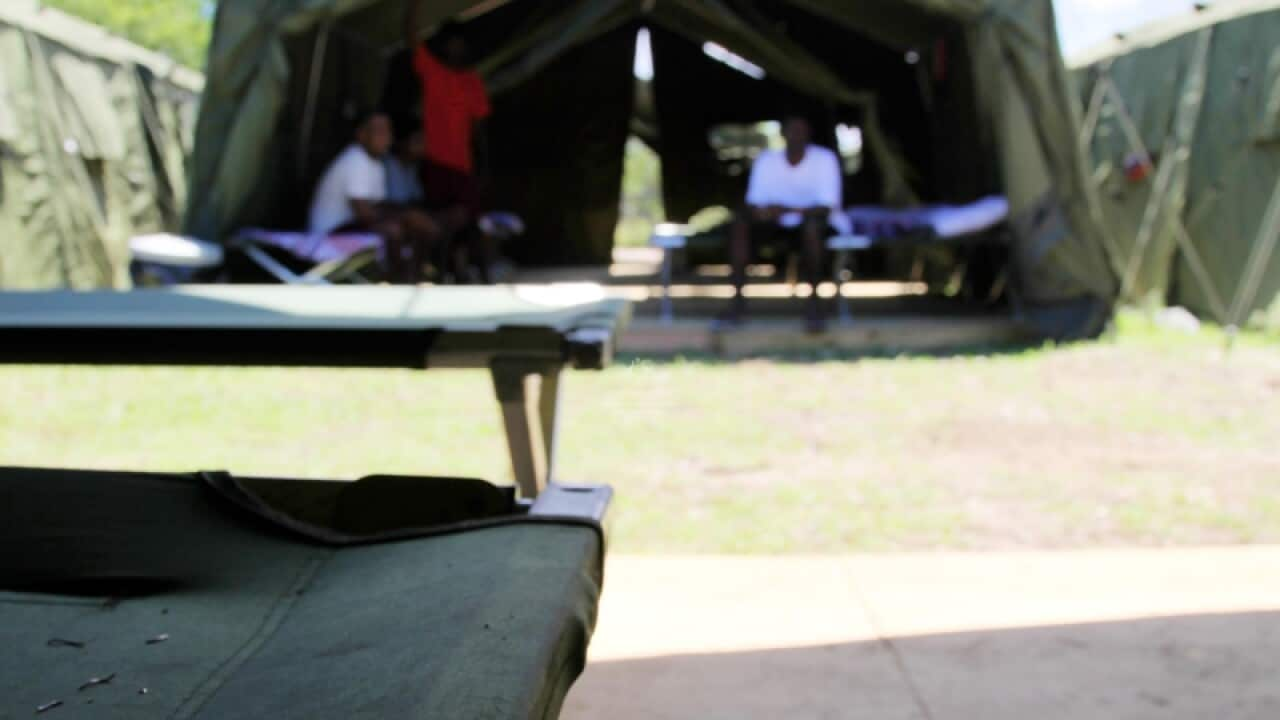A young refugee on Nauru felt she had no choice but to marry a man 15 years her senior in order to have protection whenever she went out to buy groceries.
It's one of the harrowing testimonies from refugees and asylum seekers who say they feel unsafe on the Pacific island, in a joint Amnesty International and Human Right Watch report.
The rights groups sent researchers to Nauru for 12 days in July and they interviewed 84 asylum seekers and refugees from Iran, Iraq, Pakistan, Somalia, Bangladesh, Kuwait and Afghanistan.
Every refugee and asylum seeker interviewed reported intimidation, harassment or violence directed at them or family members by Nauruans acting alone or in groups.
Some had been spat on, had bottles thrown at them, windows broken, had motorbikes swerve at them or were robbed at knifepoint.
"Refugees and asylum seekers said they were afraid to leave their accommodation, particularly at night," the report said.
"Women said they almost never left the camps and then only in groups, or with male companions."
Six women described sexual assault or harassment, demands for sex, and attempted rape.
When one young women was released from the detention centre, marriage was the only way to ensure her safety.
"If you are alone, everything is a struggle," she said.
Those interviewed lamented police did nothing to investigate or apprehend attackers.
Youngsters also felt unsafe.
Save the Children estimates that 85 per cent of refugee and asylum seeker children are not going to school because of persistent bullying and harassment.
The report was also scathing about the standard of medical care.
"They endure unnecessary delays and at times denial of medical care, even for life-threatening conditions," the report says.
A woman who had endured female genital mutilation in her home country complained about the lack of medical treatment when she developed severe pain.
In some cases the hospital refused to send an ambulance for medical emergencies.
"The hospital lacks even basic supplies, such as bandages or sterile gloves," the report said.
Immigration Minister Peter Dutton has frequently defended the health facilities on Nauru saying Australia had spent $11 million on upgrading a medical clinic at the detention centre and $26 million for the island's hospital.
International Health and Medical Services, which provides refugees and asylum seekers with treatment on Nauru, denied the report's claims about denial of treatment and poor quality care.
"We are concerned that Amnesty International chose not to visit the IHMS medical facilities, meet with staff or seek to clarify individual case concerns and are therefore reporting from an unsubstantiated perspective," a spokeswoman told AAP.












